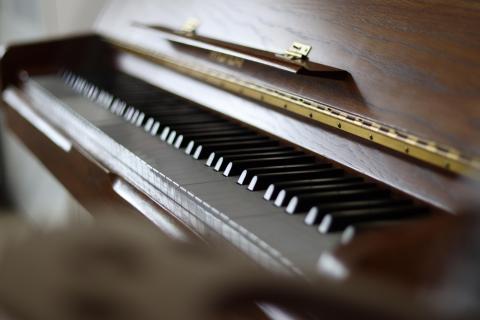Do you know when you’re learning? Lessons from a jazz great
The death of pianist Howard Riley earlier this year was far from headline news (the more recent passing of Blondie drummer Clem Burke got significantly greater coverage), reflecting the sad fact that jazz – particularly its more gnarly and challenging varieties – remains a niche interest.
For me and my wife Sandra, who enjoyed a brief career as a jazz singer, Howard had a particular significance as we both attended his Saturday afternoon jazz workshop at Goldsmith’s College for a number of years in the 1980s. Jazz has been a part of my life since my late teens and from my mid-twenties on, I made strenuous efforts to bend my rudimentary rock guitar playing to jazz’s more subtle demands. I discovered Howard’s workshop after doing a summer introductory course at Morley College and the idea of spending three hours on a Saturday afternoon attempting to play jazz was appealing: there was no audition – you simply enrolled, paid the fee and turned up.
I’d seen Howard play live a few times in free improvisation ensembles prior to enrolling on the course and wondered how his style – he tended to attack the keyboard like he had a grudge against it and had a harmonic sense that could best be described as spikey – would translate into teaching. I didn’t have to wonder long: we would turn up in a room in Goldsmith’s music department where we would find the melody and chords of a jazz tune written up on the blackboard. We would all take a few minutes to copy it down, then Howard would split us into groups, making sure that we had a reasonable distribution of instruments and we would spend the rest of the afternoon playing the new tune and any others accumulated during the preceding weeks.
And that was it. Howard would come and listen in to each of the bands at various points and occasionally offer comments or suggestions about how we might structure the piece, but most of the time the suggestions came from the members of the group. I remember a music teacher friend who attended the workshops frustratedly contrasting his minimalist approach with more interventionist teaching that he had experienced from other musicians. And I had to agree with him: he wasn’t a great teacher, at least not by conventional standards.
But, on learning that he had died, Sandra and I realised that we had learnt a vast amount without really realising it. We still have the music from those sessions that’s formed a library of jazz standards that we can occasionally recall and a lifelong love of the music of Duke Ellington and Thelonious Monk, two of Howard’s favourites.
So, what does this tell us about the way we learn? We’re conditioned to think that most learning happens in schools and colleges, often in a classroom setting, but experience tells us that the most important learning actually happens from, well, experience. There’s nothing new in that observation – we try something, we make mistakes, we reflect on what happened and we work out how to improve. Coaching and mentoring can have a powerful effect on accelerating that process, but sometimes it’s sufficient to create the space where people can try things out, fail and repeat the process to hopefully improve. That’s what Howard Riley did, but it’s only on his passing that I realised what he’d helped me with.
I remained a rank amateur but Sandra went on to study at the Guildhall and refine her instrumental approach to jazz singing – on hearing she wanted to enrol in the class, Howard’s reaction was “we don’t do show tunes you know”, to which her response was “neither do I” – but without the space that the jazz workshop created, our musical lives would have been much poorer.
How do you create space for your clients to learn? And how do you know when you’ve learned from them?
Nick Bush is Chair of the Education Committee of the Worshipful Company of Management Consultants and a former Director of CMCE.
